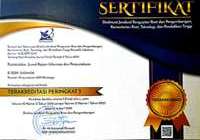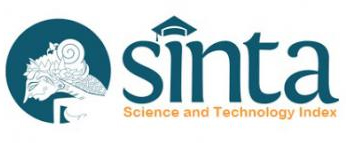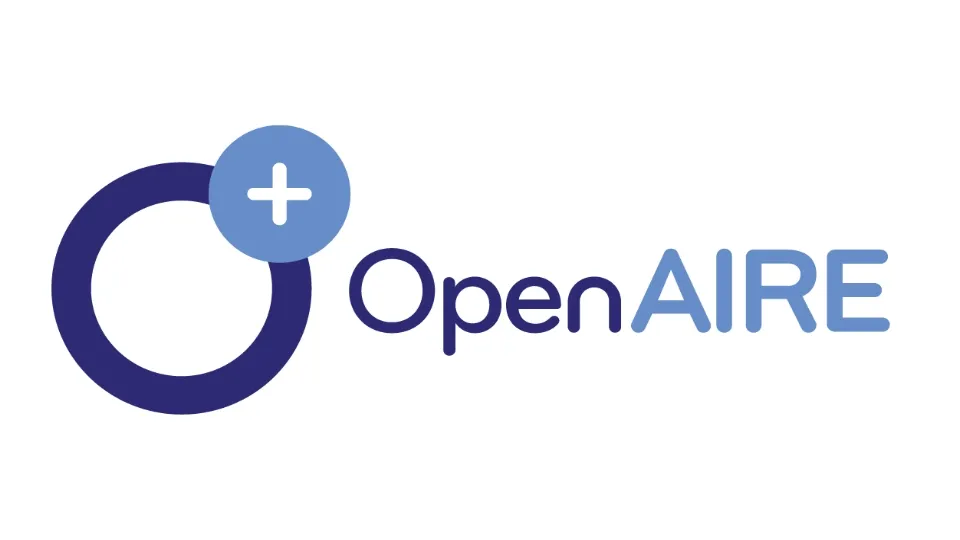Evaluasi Keterpakaian Koleksi Referensi di Perpustakaan Universitas Muhammadiyah Buton
DOI:
https://doi.org/10.21154/pustakaloka.v10i1.1301Keywords:
Koleksi Referensi, PerpustakaanAbstract
Tujuan penelitian ini adalah untuk mengetahui tingkat keterpakaian koleksi referensi di Perpustakaan Universitas Muhammadiyah Buton. Dalam penelitian ini, penulis menggunakan penelitian deskriptif yakni untuk mendeskripsikan data akurat mengenai fakta-fakta, sifat-sifat hubungan antara fenomena yang diselidiki. Dengan metode kuantitatif yakni untuk mengungkap keterpakaian koleksi referensi di Perpustakaan Universitas Muhammadiyah Buton dengan cara mencatat dan menjumlahkan koleksi referensi yang terpakai selama waktu penelitian dilakukan kemudian dideskripsikan. Hasil analisa menunjukkan bahwa keterpakaian koleksi referensi di Perpustakaan Universitas Muhammadiyah Buton berdasarkan penelitian yang dilakukan jika ditinjau dari segi pemanfaatan masih tergolong rendah dimana koleksi referensi indeks dan abstrak, bibliografi, direktori dan almanak dalam penelitian yang dilakukan selama 3 (tiga) Minggu disesuaikan dengan jam kerja tidak pernah digunakan. Sedangkan koleksi referensi yang paling tinggi keterpakaiannya masuk dalam kelompok referensi ensiklopedi yaitu dari 86 judul (100 %) telah terpakai 23 judul (27 %) dan koleksi yang tidak terpakai berjumlah 63 judul (73 %) selama 3 (tiga) Minggu disesuaikan dengan jam kerjaReferences
Buku
Lasa Hs. (2009). Kamus Istilah Kepustakawan Indonesia. Yogyakarta: Pustaka Book Publisher.
P, Sumardji. (1992). Pelayanan Referensi di Perpustakaan. Yogyakarta : Kanisius.
Sugiyono. (2010).Metode Penelitian Pendidikan (Pendekatan Kualitatif dan Kuantitatif R dan D. Bandung : Alfabeta.
Artikel Jurnal
Muhammad Azwar. (2015). Pemanfaatan Jurnal elektronik Sebagai Referensi dalam penulisan Skripsi di Institusi Pertanian Bogor. Jurnal Perpustakaan Stain Kudus, 2 (2)
Anisa Listiana. (2014). Sumber dan Piranti Referensi dalam Membangun Karakter Studi Islam (Menelusuri Pustaka Bibliografi Barat dalam Studi Islam). Jurnal Perpustakaan Stain Kudus, 2(2)
Khoirul Muslaha. (2015). Evaluasi Pemanfaatan Koleksi Perpustakaan dengan Menggunakan Analisis Sitasi Terhadap Skripsi Mahasiswa Program Studi Pendidikan Agama Islam Tahun 2011 di Pusat Perpustakaan IAIN Surakarta, Jurnal Perpustakaan Stain Kudus, 2 (2)
Jonner Hasugian. (2005). Analisis Sitiran Disertasi Program Doktor (S-3) Ilmu Kedokteran Sekolah Pascasarjana Universitas Sumatera Utara, Jurnal Studi Perpustakaan dan Informasi, 1 (2)
Saufa,A.F., & Wahyu, J. (2017). Evaluasi Sistem Temu Kembaliu Informasi KOHA di Perpustakaan Muhammadiyah Surakarta. Khizanah al-Hikmah : Jurnal Ilmu Perpustakaan, Informasi dan Kearsipan, 5 (2).
Downloads
Published
Issue
Section
License
Requirements to be met by the author as follows:
- Author storing copyright and grant the journal right of first publication manuscripts simultaneously with licensed under the Creative Commons Attribution License that allows others to share the work with a statement of the work's authorship and initial publication in this journal.
Authors can enter into the preparation of additional contractual separately for non-exclusive distribution of a rich version of the journal issue (eg: post it to an institutional repository or publish it in a book), with the recognition of initial publication in this journal.
Authors are allowed and encouraged to post their work online (eg, in institutional repositories or on their website) prior to and during the submission process, because it can lead to productive exchanges, as well as citations earlier and more severe than published works. (see The Effect of Open Access).















